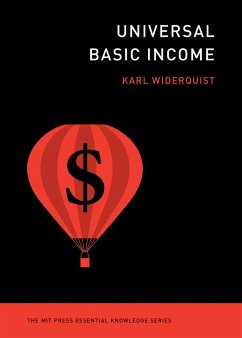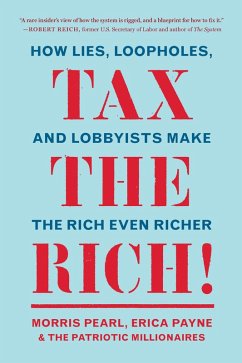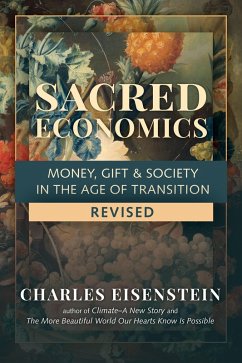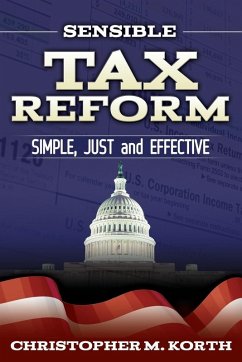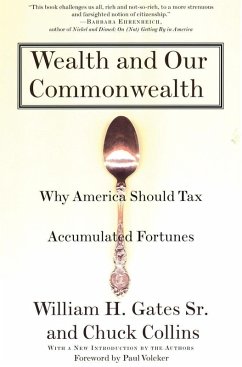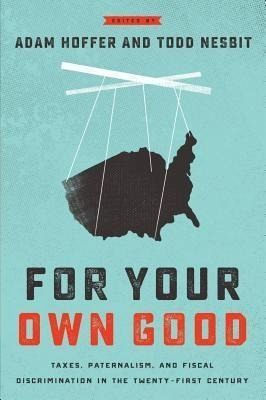
For Your Own Good (eBook, ePUB)
Taxes, Paternalism, and Fiscal Discrimination in the Twenty-First Century
Redaktion: Hoffer, Adam; Nesbitt, Todd

PAYBACK Punkte
3 °P sammeln!
Taxing "sin" is one of the oldest and most persistent forms of selective taxation. Founding Father and Treasury Secretary Alexander Hamilton is said to have imposed a tax on whiskey "before the ink on the US Constitution was dry." Motivated as much by a need to increase revenues as by a desire to do good, politicians often claim that "sin taxes" will fund projects that promote public health as well as curb unhealthy behavior. Yet sin taxes often represent inefficient public policy and may lead to a host of ill effects and unintended consequences that fail to improve public health and dispropor...
Taxing "sin" is one of the oldest and most persistent forms of selective taxation. Founding Father and Treasury Secretary Alexander Hamilton is said to have imposed a tax on whiskey "before the ink on the US Constitution was dry." Motivated as much by a need to increase revenues as by a desire to do good, politicians often claim that "sin taxes" will fund projects that promote public health as well as curb unhealthy behavior. Yet sin taxes often represent inefficient public policy and may lead to a host of ill effects and unintended consequences that fail to improve public health and disproportionately hurt the poor. Although selective taxes are politically more popular than other forms of taxation, states that need to raise revenue can find more efficient ways to do so-such as by lowering the tax rate and broadening the tax base. Sin taxes simply don't deliver as advertised: they distort rather than curb undesirable behavior, they have unintended (and harmful) consequences, and they disproportionately hurt low-income taxpayers. And they don't improve public health.
In For Your Own Good: Taxes, Paternalism, and Fiscal Discrimination in the Twenty-First Century, public budgeting and taxation experts Adam Hoffer and Todd Nesbit bring together the work of 25 scholars in the field of public choice economics to raise awareness of the consequences of selective taxation and encourage a better-informed debate over such policies. Inspired by an earlier book on selective taxation, Taxing Choice: The Predatory Politics of Fiscal Discrimination (1997), the current volume brings together case studies on selective taxation and essays about public finance and public choice, the political economy of public budgeting, fiscal federalism, and the economics of the failing "nanny state."
For Your Own Good provides the thorough analysis of selective taxation needed to motivate better policy and will serve as an indispensable resource to many public choice economists and public policy experts. Instructors of undergraduate courses in public policy and public economics will find it a useful guide, as will graduate students and academics studying political economy.
In For Your Own Good: Taxes, Paternalism, and Fiscal Discrimination in the Twenty-First Century, public budgeting and taxation experts Adam Hoffer and Todd Nesbit bring together the work of 25 scholars in the field of public choice economics to raise awareness of the consequences of selective taxation and encourage a better-informed debate over such policies. Inspired by an earlier book on selective taxation, Taxing Choice: The Predatory Politics of Fiscal Discrimination (1997), the current volume brings together case studies on selective taxation and essays about public finance and public choice, the political economy of public budgeting, fiscal federalism, and the economics of the failing "nanny state."
For Your Own Good provides the thorough analysis of selective taxation needed to motivate better policy and will serve as an indispensable resource to many public choice economists and public policy experts. Instructors of undergraduate courses in public policy and public economics will find it a useful guide, as will graduate students and academics studying political economy.
Dieser Download kann aus rechtlichen Gründen nur mit Rechnungsadresse in A, D ausgeliefert werden.





